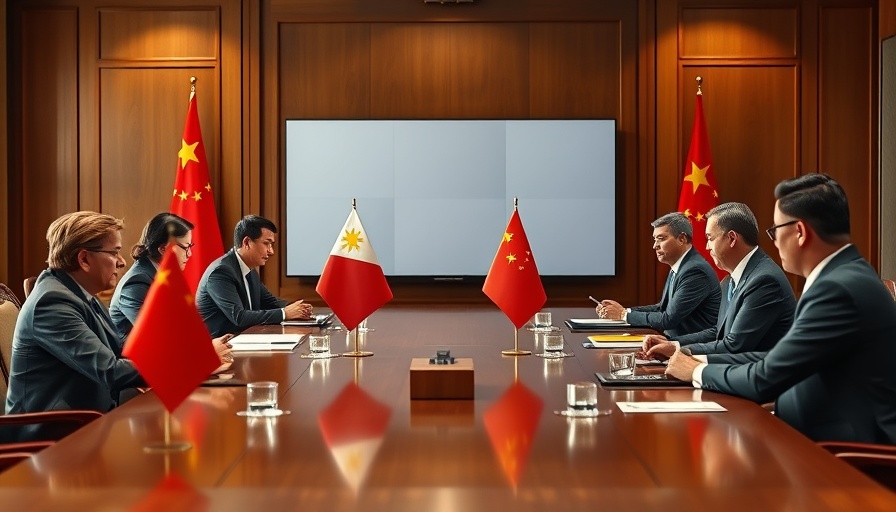
Reflecting on a Pivotal Moment in International Relations
As we commemorate the ninth anniversary of the Philippines-China South China Sea Arbitral Tribunal ruling, it's important to take a moment to analyze the ongoing implications this landmark decision has had on both regional stability and global geopolitics. The July 2016 ruling, which unequivocally favored the Philippines over China regarding territorial claims in the South China Sea, was hailed as a significant victory for international law and maritime rights.
Understanding the Ruling's Outcomes
The tribunal's ruling dismissed China's expansive claims to the vast majority of the South China Sea, instead affirming the rights of the Philippines to its Exclusive Economic Zone. This verdict was not just a legal triumph; it reshaped diplomatic dialogues and military strategies in Southeast Asia. However, in the years that followed, the international community has witnessed China's persistent disregard for the ruling, embarking on provocative actions such as the militarization of certain islands and increased naval operations in contested waters.
The Economic Stakes and Regional Responses
The waters of the South China Sea are not merely a maritime battleground; they are also rich in resources, including vital shipping lanes and potential oil and gas reserves. As China continues to assert its control, neighboring countries are compelled to reassess their strategic relationships. The Philippines, under various administrations, has harmonized its foreign policy to navigate the fine line between asserting its territorial claims and engaging in dialogue with China for economic development. This balancing act speaks volumes about the intricate nature of international relations in a resource-rich region.
Future Predictions and Geopolitical Trends
Looking ahead, experts predict that the implications of the South China Sea dispute will continue to be significant. The recent increase in U.S. military presence in the region highlights a strategic shift as Washington reaffirms its commitment to defend international maritime laws. As tensions simmer, alliances may shift, compelling countries within the Association of Southeast Asian Nations (ASEAN) to either bolster their defenses or collaborate more closely with superpowers like the U.S. and Japan.
Counterarguments: The Nuance of National Sovereignty
While the ruling marks a firm stance against expansionism, critics argue that it could complicate diplomatic relations, leading to a prolonged period of tension between China and its neighbors. There are also concerns about the cost of military escalation and the potential for armed conflict. Finding common ground between enforcing international norms and addressing national sovereignty will be key as diplomatic efforts continue.
The Role of International Actors
The United States, as a global leader, has a vested interest in maintaining open sea lanes and ensuring that international laws are upheld. Recent legislative discussions in Washington reflect a heightened focus on foreign affairs, notably in relation to U.S.-China relations. With both countries increasing their military capabilities, a calculated approach to diplomacy and cooperation is essential to avoid conflict.
Local Perspectives and Public Sentiment
In the Philippines, public sentiment surrounding the ruling remains divided. While many celebrate it as a victory for sovereignty, others express concerns over the implications of aligning too closely with U.S. military strategies. The fear of potential repercussions from China weighs on the minds of Filipino citizens, highlighting the complex relationship between domestic politics and international diplomacy.
Final Thoughts: Upholding International Law
As the world observes the ninth anniversary of the arbitral tribunal ruling, it is imperative to recommit to the principles of international law and regional stability. Continued discussions about the South China Sea issue should not only focus on military tactics but also on fostering economic ties and promoting sustainable development. The road ahead may be fraught with challenges, but adhering to principles of justice and equity can lead to a more peaceful resolution.
 Add Element
Add Element  Add Row
Add Row 



 Add Row
Add Row  Add
Add 


Write A Comment